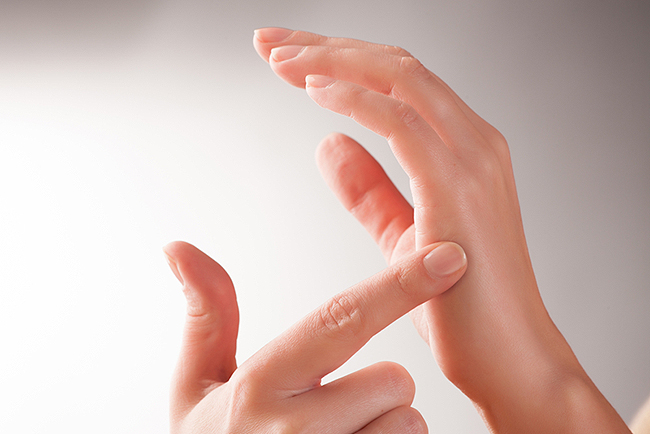The #1 Invisible Cause of Emotional Eating That Can Sabotage Even The Best Intentioned Health Goals
Over the years I’ve worked with many extremely well intentioned, savvy, health-conscious individuals to heal a challenging relationship to food where often their cravings get the best of them time and time again.
Wanting to be healthier is an absolute must, due to the chronic health concerns for many of these well intentioned people, and yet they will find themselves in the fridge late at night just munching through whatever they can find; or at work or at parties they may not be able to stop themselves from grinding down the cakes, candies, you name it that they find; or they may just binge eat on starchy, sugary foods daily without really being aware of it consciously. However the habit shows up, the key is that it is out of control for them and sabotaging their otherwise good intentions for their health, and they cannot stop no matter how hard they try.
So what is going on when this is happening? Is it a lack of willpower? Laziness?
I would argue that it is the absolute opposite! People who are working hard to get healthier are anything but lazy and willpower should never be a part of the recipe to be empowered to do so.
If it isn’t natural and easy to be in action then something else is at the root of the issue.
So What Is The Cause?
At the root of the issue it’s not about knowing not to over-eat the sugar or processed foods but being unable to stop because something is in the way. We often do not know what is in the way or why we are unable to stop addictive or obsessive habits because it is just out of our immediate conscious awareness.
Emotional stress is what is often "in the way” and out of our immediate conscious awareness. It is the absolute number one cause of so much of our obsessive or even addictive food behaviors, in my experience, and according to increasing numbers of researchers.
Emotional stress can be like the water we swim in - so natural to us at times that we don’t recognize we are stressed until there is an actual absence of it or a major chronic problem that we cannot ignore.
Are You Stressed? How Can You Tell?
There are immediate chronic stressors in our lives and the unresolved stress from our distant pasts that can accumulate and raise our anxiety levels slowly over time to the point that we just get used to it.
The only way that we often know we are stressed is by assessing our symptoms of it.
Some common symptoms of chronic unresolved emotional stress may be the following:
- Addictive need for food or other substances to calm, soothe or relax
- Sudden unexplained weight gain, especially around the stomach
- Extreme fatigue, or fatigue in general
- Memory issues
- Sleep issues
- Irritability and mood changes
- Unable to recover relatively quickly from a new stress like a job change, move or other challenge
- Chronic health challenges: many would argue that all health challenges have a component of an emotional stressor at the root of it
Road To Recovery
There is very good news in recognizing stress and addressing it, of course. We heal. We come into balance. We feel good again and recover our inner peace.
The road to recovery that I love to guide people in is with techniques to help resolve chronic stress. My favorite tool is called Emotional Freedom Techniques - EFT or Meridian tapping. This tool yields the fastest results when guided by an expert. The healing can happen in a matter of weeks to months for many, and then balance may be restored and healthier eating habits become very simple to follow because there isn’t a need to soothe anxiety or emotional pain.
Here’s a simple technique to use EFT tapping for emotional food cravings when you’re absolutely exhausted.
If you feel yourself reaching for that bar of chocolate or tub of ice cream, first stop and tap with 4 fingers on the opposite side of your hand. It’s called the ‘karate chop’ position.

Simply repeat a statement like the ones suggested below 3 times while you tap on the side of your hand:
- “I am full of love, and deeply love and accept myself.”
- “I allow myself to be tired and overwhelmed, and love and accept myself.”
- “I am nourishing my mind and body with deep breaths, and relieving myself of the stress of my day.”
Additional Lifestyle Solutions
I am also a big fan of long-term lifestyle changes that include a “less is more” philosophy. In our fast paced culture today we often do not give time for ourselves or relax as much as we need to.
Here are just a few of my favorite long term lifestyle solutions to resolve and heal stress and therefore emotional eating habits that have proven to be the most effective over the years for myself and my clients.
- Resolve stress no matter how much time you need to do this. Some things take longer to resolve, but in the end it is well worth it.
- Have daily practices to unwind stress and keep them simple, if you must. Even taking a few slow deep breaths throughout your day will make a difference.
- Learn to say "no" and not feel guilty.
- Eliminate as many negative relationships from your life as you can or find distance when possible.
- Get support through whatever groups, associations, family or friends that you can.
- Live in an attitude of appreciation and ultimately forgiveness for self and others.
- Unplug from technology whenever possible and practice good sleep habits.
- Take things off your plate as much as possible, and when stressed especially. We tend to get overwhelmed with our to-do lists and think we have to do it all sometimes. Ask yourself what you can take off the list and what is truly essential. It may be that you are actually trying to fit in way too many activities in a day or take on too many tasks. Less is often more, and productivity actually increases when we stop multi-tasking, prioritize and focus.
- Love yourself. Love is a verb. Love is compassion in action, so be compassionate with yourself no matter what shows up or how you feel. We must first have compassion for our own suffering and addiction, not shame or blame ourselves, in order to heal.
- Ultimately, follow your heart. Happiness is healing and the ultimate antidote to stress.
If you haven’t already, join our free global challenge at www.GetOffTheGluten.com to receive daily recipes & health tips, access to our private group for support and inspiration, plus before and after testing to track your progress in key areas of your life such as weight, sleep, bloating, skin-conditions, mental health and more!










